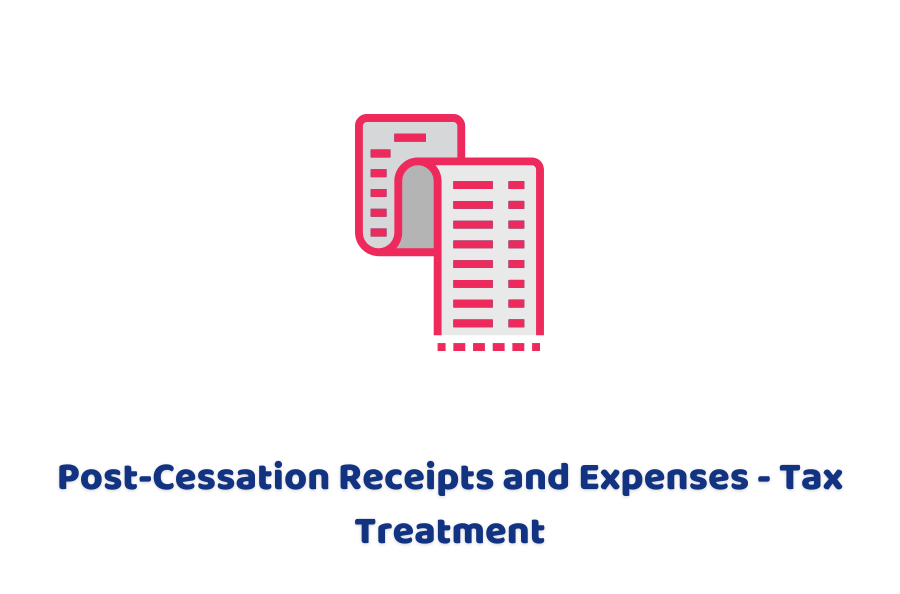Sometimes a business may have ceased trading but then receives income or incurs expenses that have not been included in the final cessation accounts e.g. an insurance payment may be received or a debt that the business owner thought would never be paid is paid. Such receipts would have arisen due to the previous carrying on of the trade. Any such income is charged to tax separately from the profit of the trade (i.e. the previous cessation period is not reopened) but the receipt is still taxed as trading income. A business that has ceased trading may also find itself paying expenses after cessation. Examples include the costs relating to the collection of debts taken into account in computing earlier trade profits before the trade ceased and remedying what is found to be defective work carried out before cessation.
A deduction is allowed for a loss or expense which, if the trade had not ceased would have been deducted in calculating the profits of the trade for corporation or income tax purposes, or would have been deducted from or set off against the profits of the trade. Such allowable expenses can be offset against any post cessation receipts. However, if the business does not have any post-cessation receipts, relief may still be available for post-cessation bad debts and certain specified expenses (broadly expenses incurred in remedying defective work or paying associated damages). Relief is given sideways against other income and capital gains of the same year and must be claimed by 31 January but one from the end of the tax year in which the payment was made e.g. if a qualifying payment is made in 2022/23, relief must be claimed by 31 January 2025. If an expense cannot be fully relieved using any of these methods then it is carried forward to be deducted from any post cessation receipts that may be received in the future, otherwise it is lost.
If the post-cessation receipts arise within six years of cessation, the person receiving the income can elect to carry back the receipts to the date of cessation.
Restricted Relief
If there are insufficient post-cessation receipts against which to offset the post-cessation expenses, (i.e. there is a loss), then there is a restriction on the amount of claimable expenses can be allowed against the other net income or capital gains for the tax year in which they are paid. The set off is subject to the £50,000 or 25% of adjusted total income cap. The relief is also restricted by the amount of any unpaid debts owed by the trader at the date of cessation. If an unpaid debt restricted the amount of relief in an earlier tax year, it is not allowed in a later year either. However, if the outstanding debt is repaid, the payment is a ‘qualifying payment’ and can be relieved.
Partner Note: BIM90000; Chapter 18 Part 2 ITOA 2005, Chapter 15 Part 3 CTA 2009

